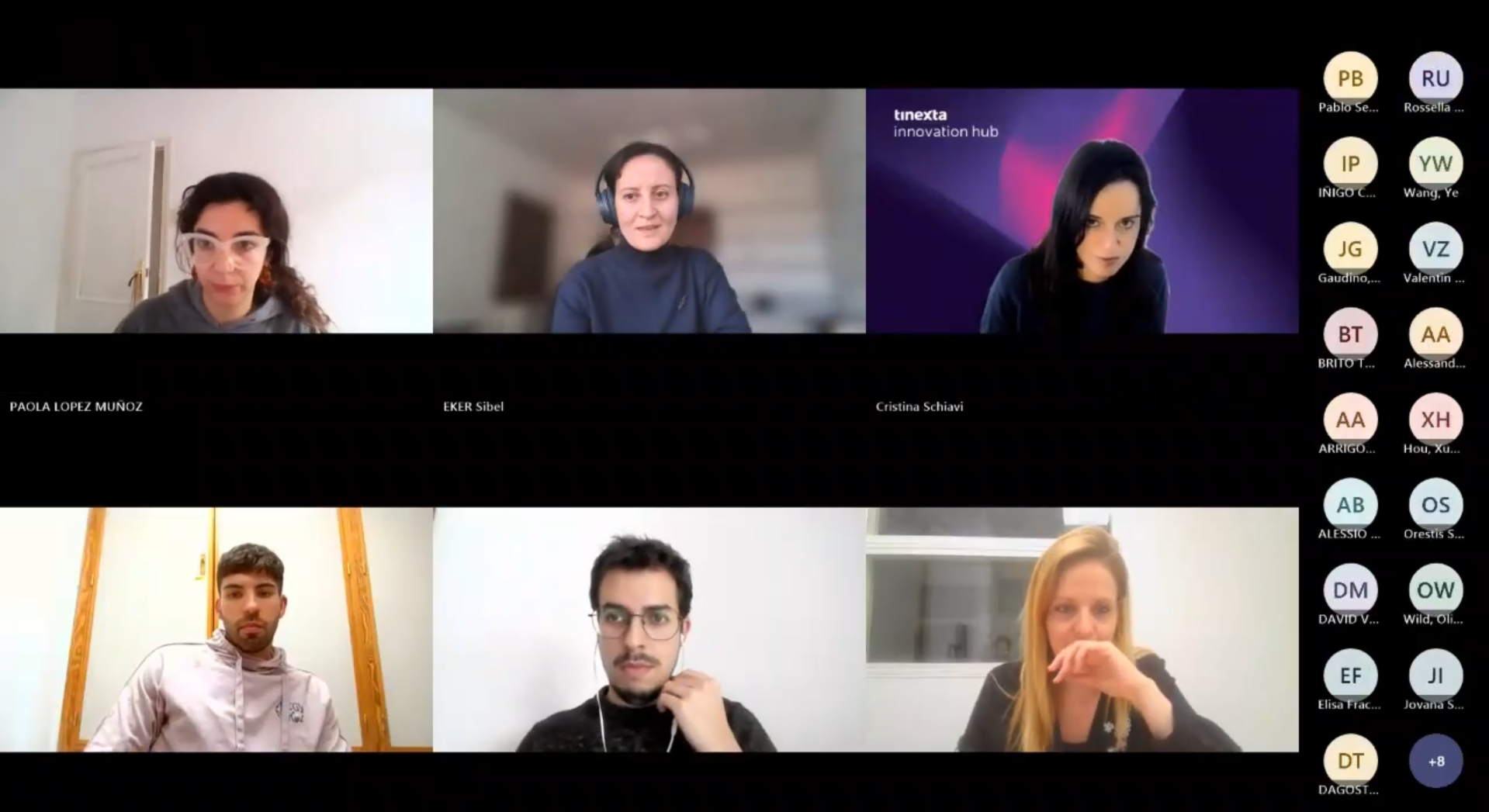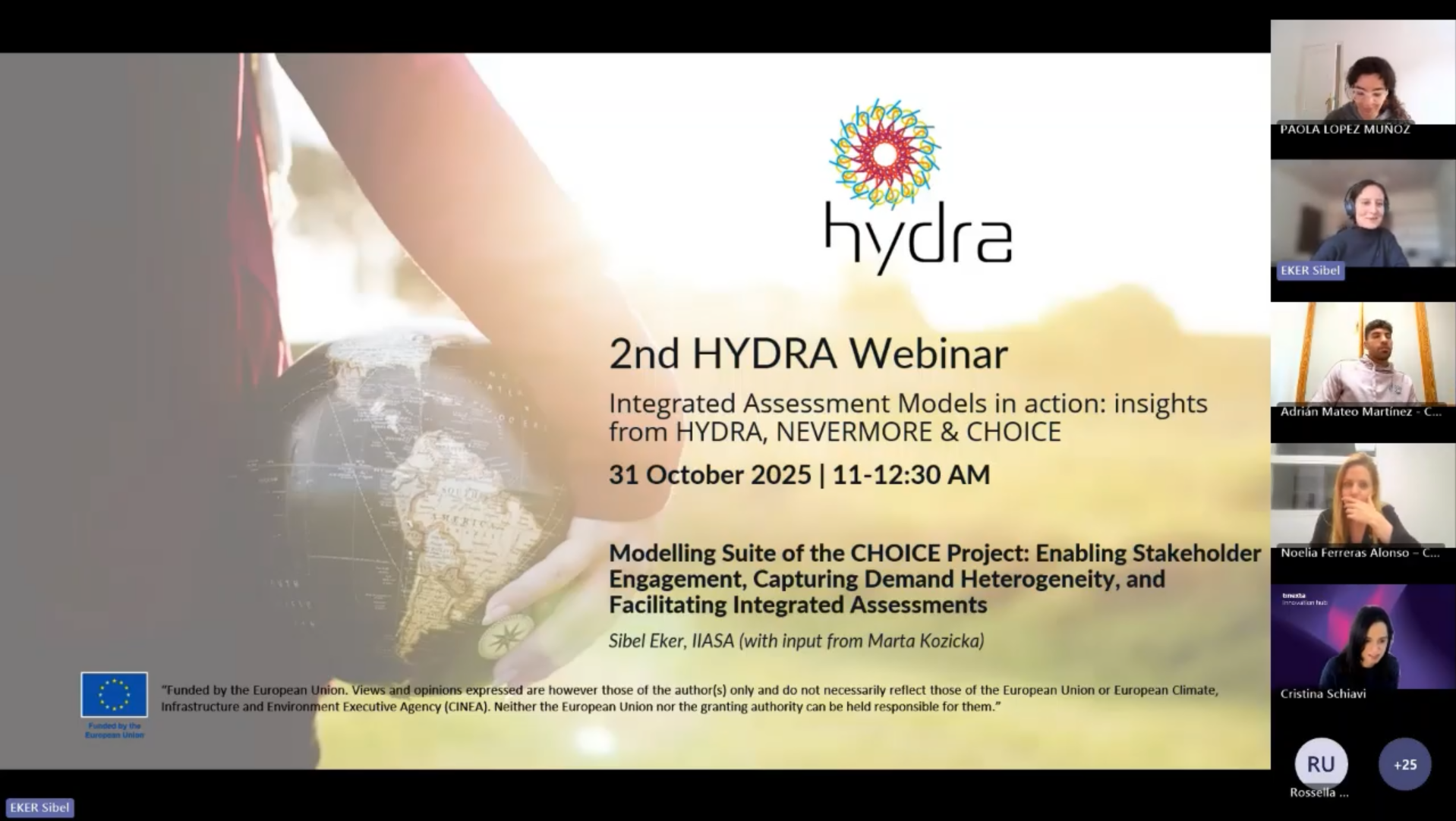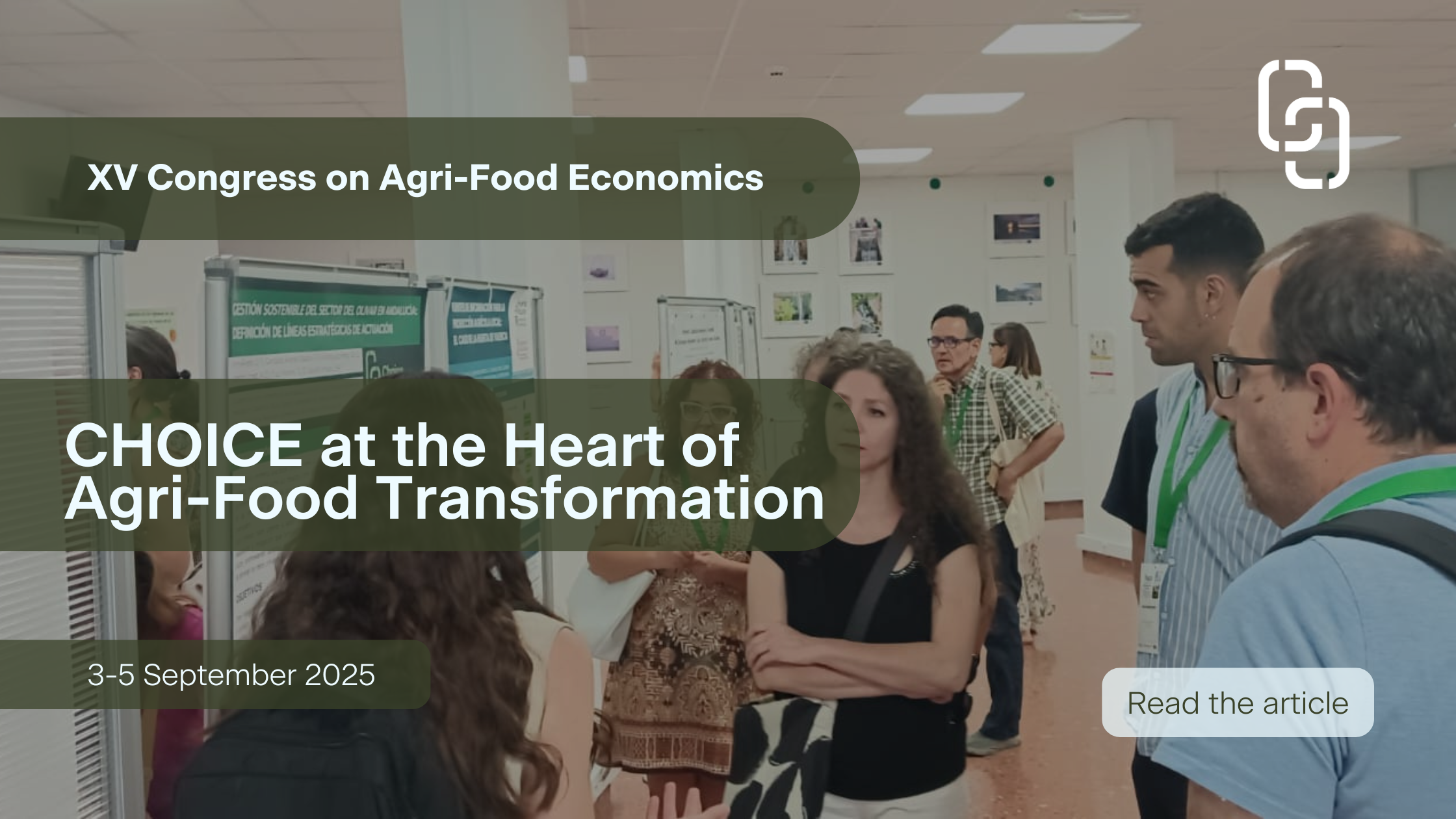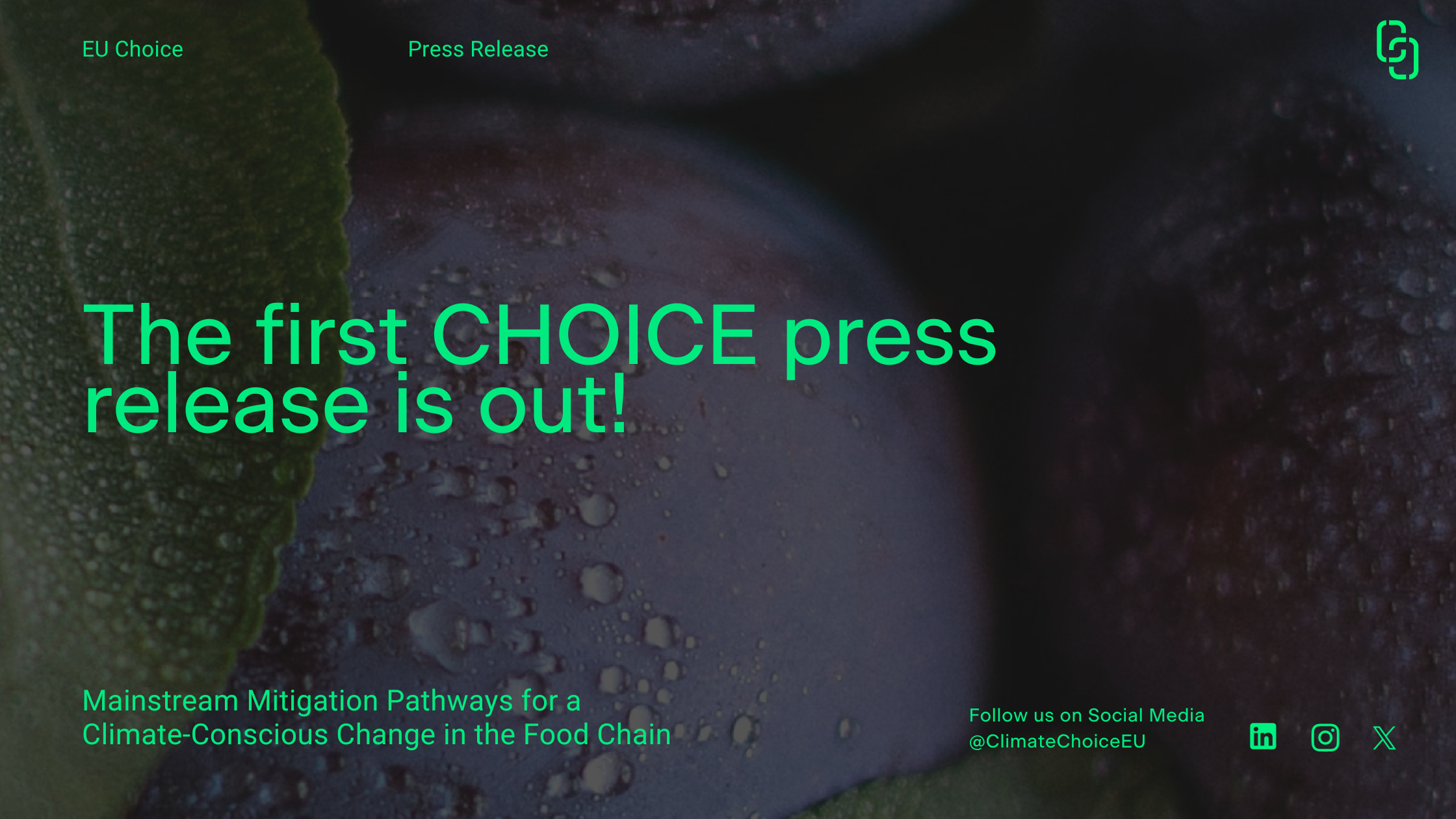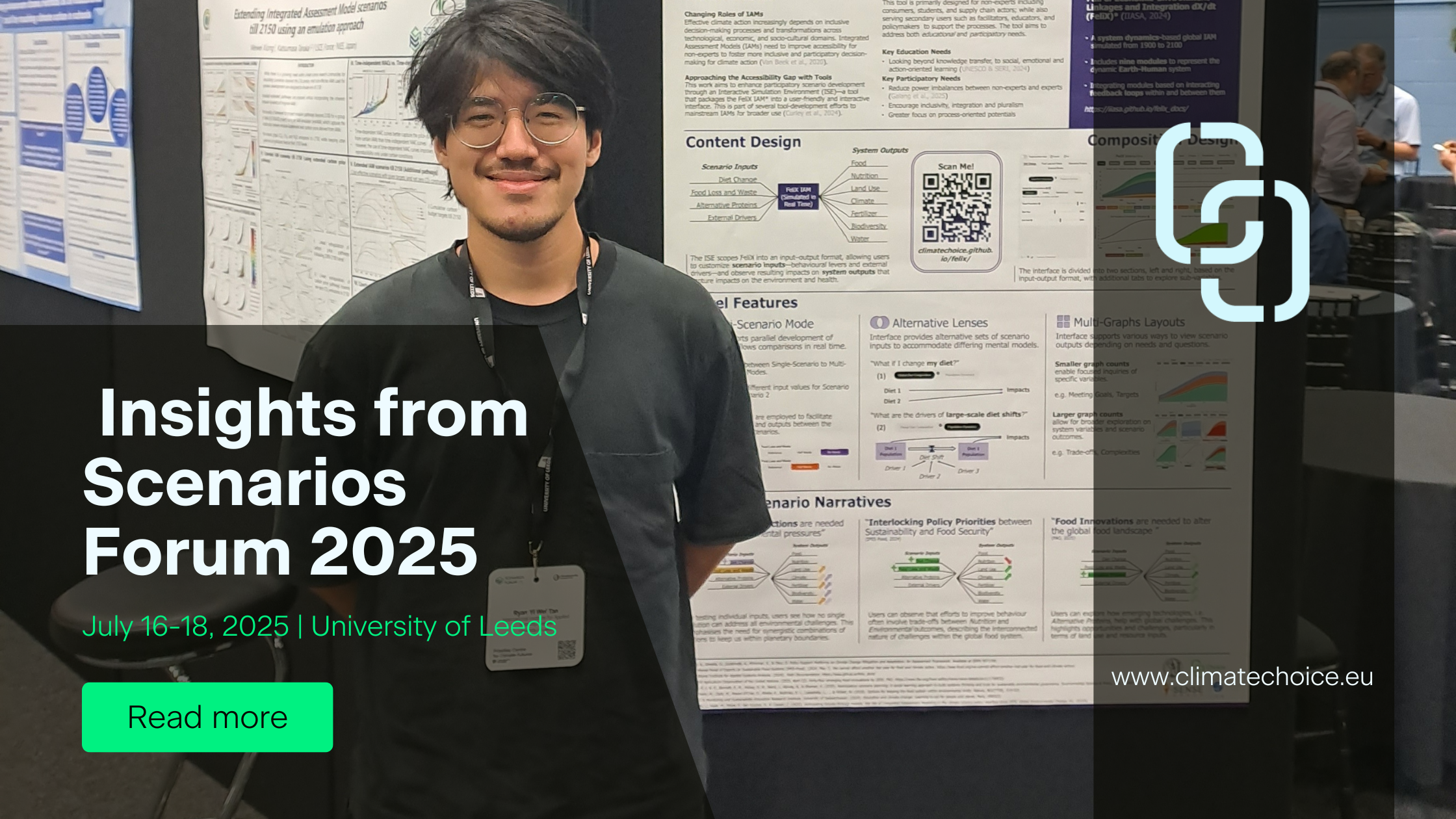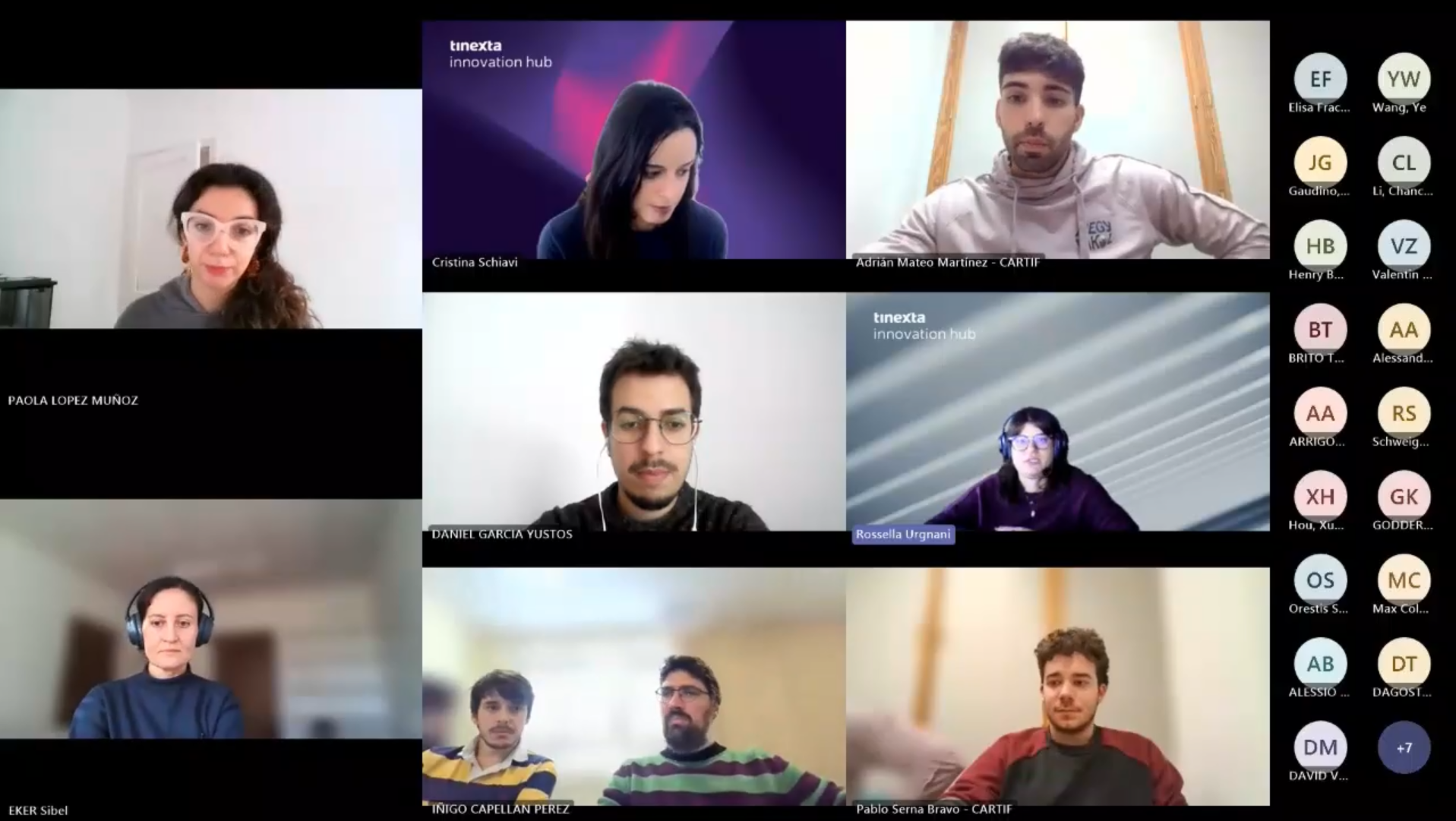
CHOICE at the 2nd HYDRA Webinar focusing on Integrated Assessment Models
Mainstreaming Integrated Assessment Models for a Climate-Conscious Transition
The second HYDRA webinar, held on 31 October 2025, brought together three leading Horizon Europe projects—HYDRA, NEVERMORE, and CHOICE—to highlight how Integrated Assessment Models (IAMs) are being applied across diverse research areas to support evidence-based policymaking and climate mitigation strategies.
Organised under the theme “Integrated Assessment Models in Action: Insights from HYDRA, NEVERMORE & CHOICE”, the webinar offered an opportunity to explore the capabilities of IAMs, not only as analytical tools but as key drivers for societal transformation. The session featured detailed presentations on the WILIAM model, currently in use by HYDRA and NEVERMORE, and concluded with a forward-looking presentation by CHOICE on the role of IAMs in shaping behaviourally informed climate action.
Introducing IAMs: From Systems Thinking to Policy Innovation
The event opened with an accessible overview of Integrated Assessment Models, emphasizing their role in synthesising knowledge across climate science, economics, and human systems. Presenters from the Universidad de Valladolid and CARTIF offered insights into how the WILIAM model is being used to simulate impacts of a hydrogen-based economy (HYDRA) and to support regional adaptation strategies under climate uncertainty (NEVERMORE).
The shared approach across HYDRA and NEVERMORE demonstrates the value of IAMs as tools that not only map future scenarios but also guide cross-sectoral policy design by incorporating environmental, technological, and social dimensions.
A Different Kind of Modelling: CHOICE’s Systemic and Inclusive Approach
Dr. Sibel Eker, Senior Research Scholar at the International Institute for Applied Systems Analysis (IIASA), presented the CHOICE modelling approach under the title:
“Modelling Suite of the CHOICE Project: Enabling Stakeholder Engagement and Capturing Demand Heterogeneity.”
Her presentation highlighted CHOICE’s ambition to mainstream IAMs by redesigning them to better incorporate behavioural diversity, social feedbacks, and the realities of decision-making by individuals, communities, and businesses. In contrast to models that treat people as a single average agent, CHOICE adopts a more nuanced and inclusive modelling strategy—critical in food, agriculture, and land-use systems where choices are culturally embedded and socially influenced.
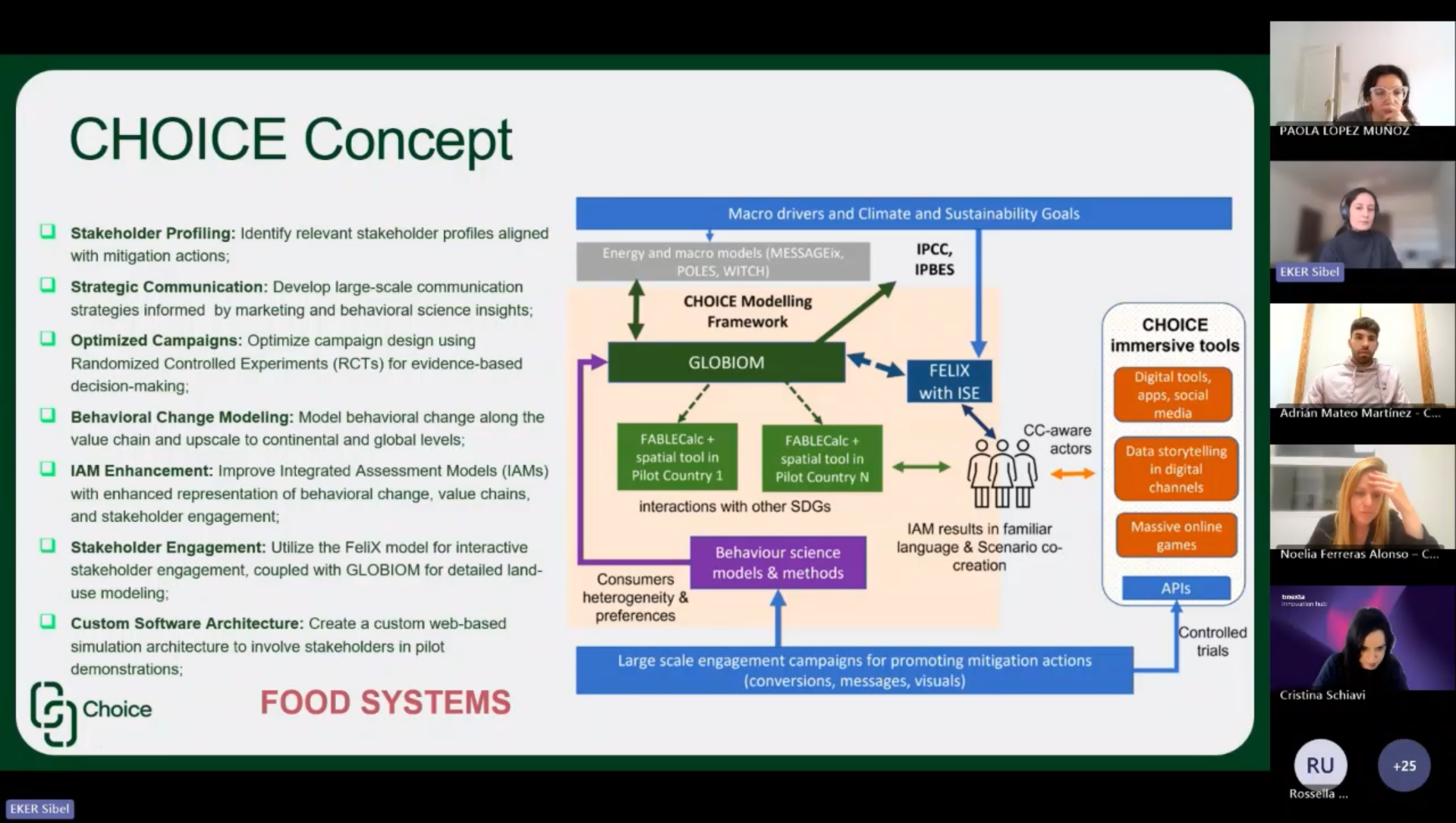
The CHOICE Modelling Suite
CHOICE employs a trio of complementary IAMs to explore the climate and sustainability implications of behavioural change across different scales:
- FABLE Calculator: An open-source national planning tool used to explore scenarios related to land use, food systems, and sustainability.
- GLOBIOM: A global partial equilibrium model linking land-use sectors such as agriculture, forestry, and bioenergy with environmental impacts like greenhouse gas emissions and biodiversity loss.
- FeliX: A feedback-rich system dynamics model that simulates long-term interactions between climate, society, economy, and behavioural patterns, particularly well suited for exploring dietary change and sustainability transitions.
Together, these models enable CHOICE to generate robust and flexible scenario analyses that capture both systemic outcomes and behavioural pathways. They serve not only as analytical tools but as a foundation for participatory processes, co-created narratives, and stakeholder engagement.
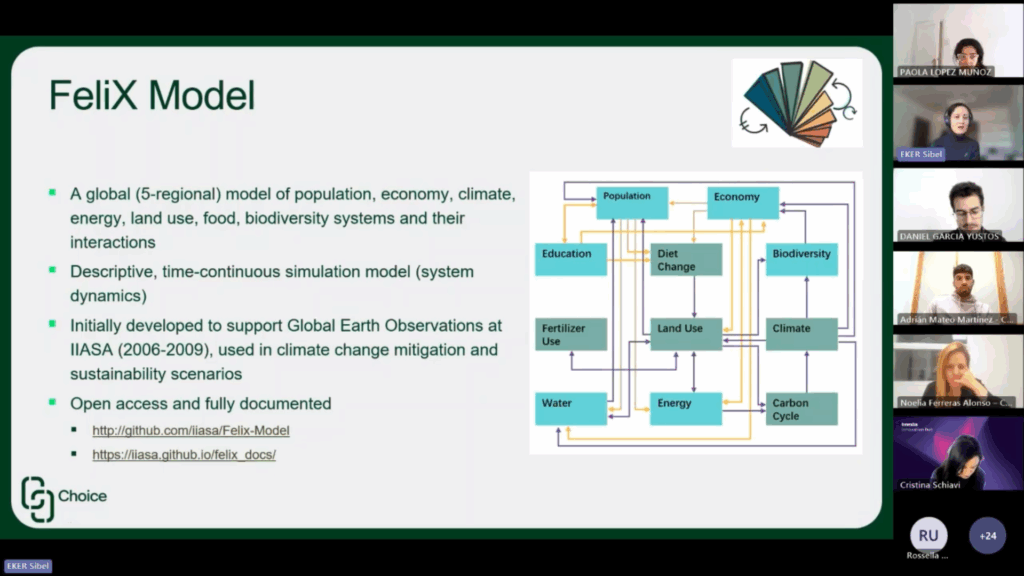
From Analysis to Action: Supporting Engagement Across Contexts
While the models are not limited to outreach purposes, they also play an active role in CHOICE’s pilot activities, providing context-specific insights that inform real-world experiments.
- In Austria and Greece, model outputs help visualise the climate impact of food choices in online supermarkets, enabling consumers to make more sustainable purchasing decisions.
- In Colombia, IAM insights support smallholder women coffee producers in transitioning to low-emission, climate-resilient farming methods.
- In Spain’s Andalusia region, models inform sustainable strategies for olive grove and livestock management in collaboration with local agricultural cooperatives.
These activities showcase how IAMs can be translated into practical engagement strategies, helping actors across the food system understand the implications of their choices and empowering them to contribute to broader mitigation pathways.
Making IAMs More Inclusive and Usable
A key message from CHOICE’s contribution was the need to rethink what IAMs are for—and for whom they are built. Dr. Eker emphasised that models must be both scientifically rigorous and socially accessible to support inclusive climate action.
This means not only improving technical assumptions, but also co-designing models and scenarios with stakeholders; communicating outputs through intuitive, visual means; and aligning modelling work with lived realities on the ground.
By embedding actor heterogeneity, CHOICE’s models allow for more equitable and realistic climate scenarios, especially in demand-side domains where behaviour change plays a central role.
Looking Ahead
The HYDRA webinar reinforced the idea that IAMs are evolving—not only in complexity, but in purpose. As CHOICE demonstrates, IAMs can now support both systemic insight and behavioural engagement, helping bridge the gap between policy targets and everyday decisions.
In the food and land-use space, where habits, cultures, and constraints shape outcomes as much as policies do, CHOICE’s integrated modelling approach offers a new way forward: one that is dynamic, participatory, and grounded in how people actually live and change.
Watch the webinar
Watch the full recording of the HYDRA 2nd Webinar here:
https://youtu.be/2L0XddHnqbY

